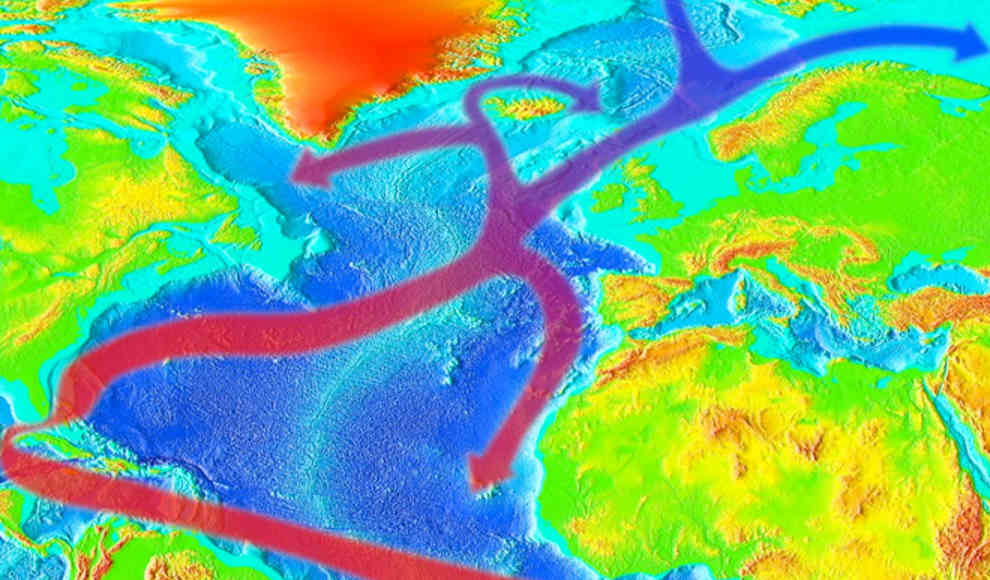The Atlantic Ocean’s buffering effect on carbon dioxide (CO2) is weakening due to a slowdown in the Atlantic Meridional Overturning Circulation (AMOC), according to a Spanish-French research team. The AMOC typically transports CO2-saturated surface water to the deep sea, but the slowdown means that CO2 remains at the surface for longer, reducing the amount absorbed by the ocean. Oceans are the Earth’s largest CO2 storage system, and understanding their CO2 uptake is crucial for improving climate models and predicting climate change. The researchers analyzed data from the past two decades and found that the absorption of anthropogenic CO2 has decreased significantly in the subpolar North Atlantic, where the AMOC has slowed down.
The researchers analyzed data from the subtropical and subpolar gyres separately and found that anthropogenic CO2 was absorbed almost exclusively in the subtropical gyre, while the subpolar gyre primarily absorbed natural CO2. The slowdown in the AMOC has mainly affected the subpolar gyre, reducing its CO2 uptake. This is because less CO2-poor water flows northward, meaning less water sinks to the deep sea and less CO2 is removed from the surface. As a result, the Atlantic’s buffering effect on CO2 is weakening, which could have significant implications for climate change.
The researchers’ findings highlight the importance of understanding the ocean’s role in the carbon cycle and the need for continued monitoring of the AMOC. The slowdown in the AMOC is a worrying trend, and further research is needed to determine its long-term effects on the Earth’s climate. The study also emphasizes the need for global action to reduce CO2 emissions and mitigate the effects of climate change.










